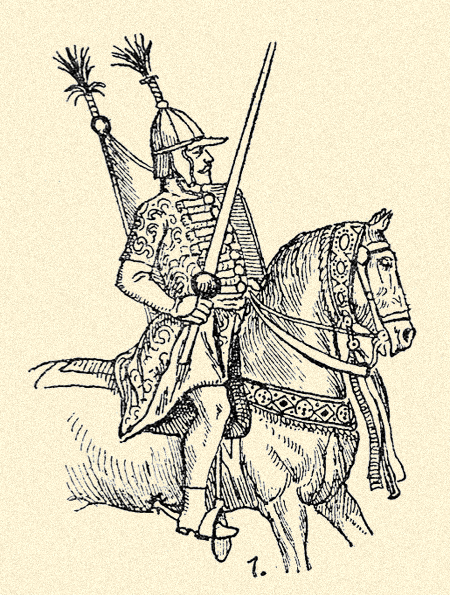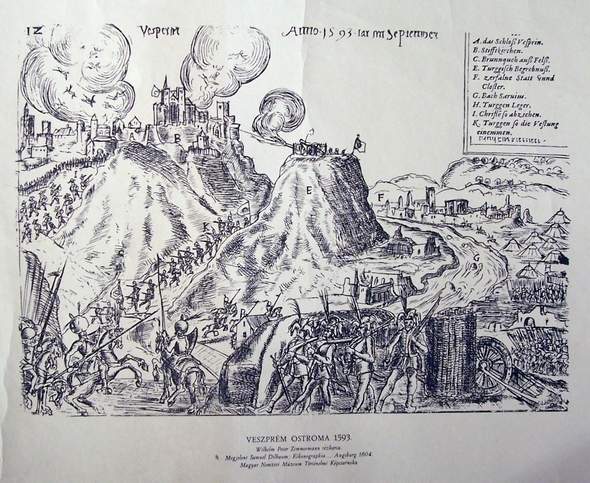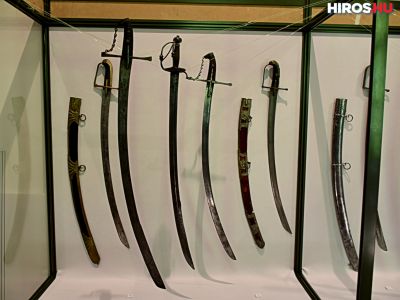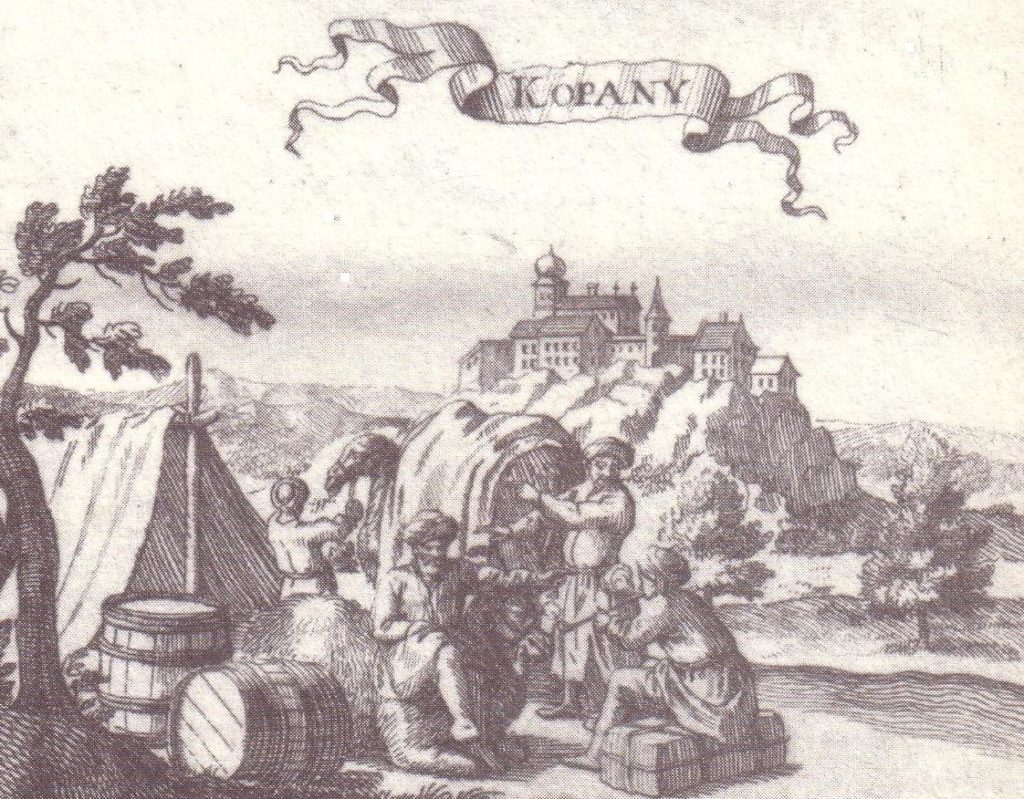The hardships of an unusual captivity
It was not uncommon in those days for a captured soldier to be replaced by his brother or fellow soldier. At the beginning of the 1570s, this happened to the future captain of Palota Castle, Ormándy Péter, when his brother János was imprisoned by the Bey Hamza of Székesfehérvár Castle. Ormándy Péter was the vice-captain of Palota at that time and offered to go to prison instead of his brother.

Hamza took up the suggestion and let János and his servant go. But instead of going straight home, János toured Fehérvár, especially the bastions and walls. The Turkish guards noticed this, and they arrested him and executed him and his servant for espionage. The Viennese court accused Kara Ali, the Sanjak Bey of Fehérvár, of the offense, but it is not known whether he knew about it.

Despite this, Hamza did not dismiss Péter, but instead took him to Nis, Serbia. Vienna ordered Carolus de Rym, the ambassador from Porte, to work for Ormándy’s release. Even the Emperor and King Maximilian himself wrote to the Buda pasha, Mustafa Sokolli, who replied on 18 September 1572:
“Among other things, your Majesty’s envoy reminded me of his relative, Ormándy. Though your Majesty had a message also from our servant Ibrahim, whom Agha Ibrahim had faithfully told us. Therefore, we will act as Your Majesty wishes in this matter, although Ormándy Péter is not our prisoner, but the prisoner of Bey Hamza, and we cannot command him. If he had been our prisoner, your Majesty may believe that we would not have opposed your Majesty’s first request. Though it had been so, we would have dismissed him. Nevertheless, as well as we may by any means, either with our money or otherwise, release him, we will go and free him.”

It didn’t happen overnight, but Rym could write on 31 March 1573 that Bey Ali was to be made a mazul, i.e. deprived of his office and that Bey Hamza was to be ordered to release Ormándy, since he was not a prisoner but only a guarantor. And Hamza will have to take the prize for János Ormándy on the bey Ali. The mills of the Porta were grinding slowly, but by 2 December De Rym could write that Ormándy was on his way and would soon be home. And so he was.

For the sake of completeness, it is also worth presenting the known details of Ormándy’s life. Ormánd was a settlement in Baranya, Zala, and Hont in the Middle Ages, we don’t know which one this small family was named after. The first record of Ormándy’s life is roughly the captivity, and from this, we know that he had a brother.

Ormándy Péter had a reputation as a great soldier. When he was wounded in June 1575, his superior, the captain of Palotai, Pálffy Tamás, urged the chief captain of Győr to send a barber from Veszprém “because it would be a pity if something happened to such a brave man as Ormándy Péter”. Because of his valor, he received the village of Pere(marton) from Archduke Ernst in 1579.

In the autumn of 1583, he played a significant role in the great victory of the soldiers of Veszprém and Palota over the Ottoman troops of Koppány between Balatonfőkajár and Lepsény. At first, the Turks were in the superior position and the Veszprém troops were already considering retreating when Ormándy appeared with 100 infantry and 60 hussars. Caught between two fires, the Ottoman troops of Koppány Castle were severely defeated, and the Sandjak Bey Ali himself was taken prisoner.

On 20 March 1586, Ormándy and several others submitted their applications for the captaincy of Tata Castle, but it was finally given to Paksy György. However, Ormándy did not have to mourn for long, because on 29 March 1588, the king appointed him as head of the Palota Castle. He carried out his task successfully, keeping an eye on the Turks in Fehérvár, and in January 1589 he reported that the Turks of Fehérvár Castle were preparing to attack the Rábaköz region. Both Nádasdy Ferenc and Huszár Péter mobilized, but the cunning defenders of Fehérvár finally attacked from the south around Lake Balaton and captured the castle of Tátika. The raids continued uninterrupted in the region throughout the spring.

The end of Ormándy’s captaincy finally came with the Turkish campaign of the first year of the Fifteen Years’ War. On 9 October 1593, after taking Veszprém, Grand Vizier Sinan marched with the Turkish army against Palota Castle, which Ormándy Péter defended with 650 Hungarian and German soldiers. The Pasha demanded the captain’s surrender, but Ormándy refused, even though Sinan had threatened to drive Captains Fernando Samaria Speziecasa and Georg Hoffkirchen, who had been captured at Veszprém, and their 200 soldiers against the walls of Palota as a human shield.

Sinan bombarded Palota Castle for two days, and it caused the northern towers and bastions to collapse. The next day Ormándy began negotiations and sent Lieutenant Berzenczei Miklós to the Pasha, who swore an oath of free retreat. However, most of the retreating guards were slaughtered by the Janissaries, and few, including Ormándy, managed to escape. The four lieutenants, Szegedi András, Sangally Barnabás, Pataki Gergely, and Berzenczei Miklós, also fell. Ormándy was sentenced to prison by the Military Court of Győr.
Source: Szibler Gábor
Dear Readers, I can only make this content available through small donations or by selling my books or T-shirts:
Please, support me with a coffee here: https://www.buymeacoffee.com/duhoxoxa
You can check out my books on Amazon or Draft2Digital, they are available in hardcover, paperback, or ebook:
https://www.amazon.com/dp/198020490X or at https://books2read.com/b/boYd81

My work can also be followed and supported on Patreon: Become a Patron!http://Become a Patron!
Become a Patron! and donations can be sent by PayPal, too: https://tinyurl.com/yknsvbk7


https://hungarianottomanwars.myspreadshop.com/all
Subscribe to my newsletter here: https://tinyurl.com/4jdjbfkn

